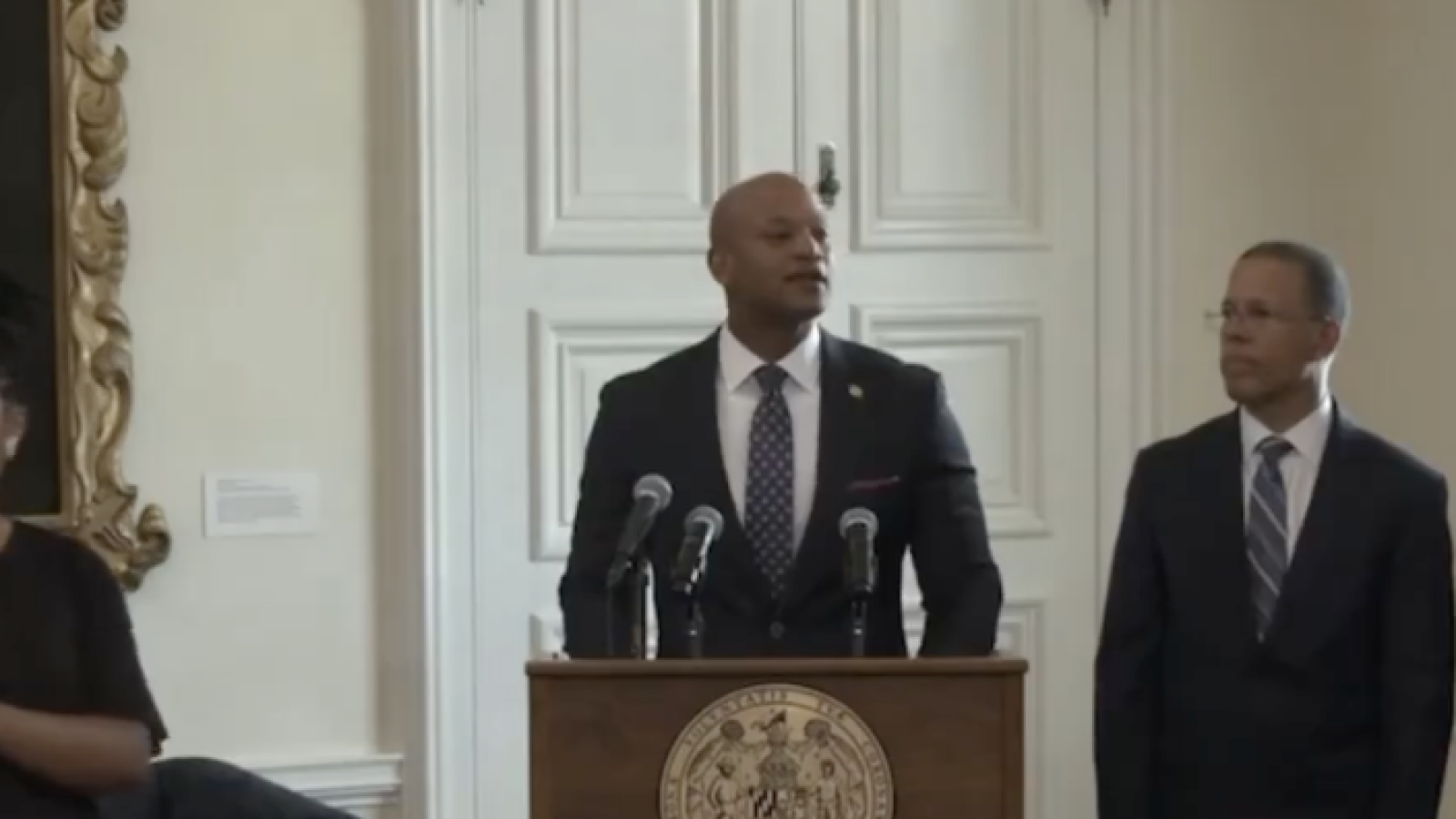Democrat Governor of Maryland Wes Moore has signed an executive order that will pardon 175,000 Maryland convictions related to possession of marijuana.
In a press release, the office of Wes Moore will pardon over 175,000 people who have been convicted of “misdemeanor possession of cannabis and certain convictions for misdemeanor possession of drug paraphernalia.”
The move by Moore makes it one of the largest pardons in United States history.
In a statement, Moore shared, “Maryland made history when we legalized cannabis by referendum. But we cannot celebrate the benefits of legalization while forgetting the consequences of criminalization.
Maryland Governor Wes Moore today pardoned more than 175,000 convictions related to the possession of cannabis (marijuana) and cannabis paraphernalia. “We cannot celebrate the benefits of legalization if we do not address the consequences of criminalization.” pic.twitter.com/gdjdmhFHhF
— Keith Boykin (@keithboykin) June 17, 2024
Per The Office of Governor Wes Moore:
Governor Wes Moore today signed a historic executive order pardoning 175,000 Maryland convictions related to the possession of cannabis, including convictions for misdemeanor possession of cannabis and certain convictions for misdemeanor possession of drug paraphernalia. The order represents the largest pardon for misdemeanor cannabis possession charges for any state in the country and the inclusion of paraphernalia makes Maryland the first state to take such action.
“Maryland made history when we legalized cannabis by referendum. But we cannot celebrate the benefits of legalization while forgetting the consequences of criminalization. No Marylander should face barriers to housing, employment, or education based on convictions for conduct that is no longer illegal,” said Gov. Moore. “Today, we take a big step forward toward ensuring equal justice for all. But this won’t be our last effort. We must continue to move in partnership to build a state and society that is more equitable, more just, and leaves no one behind.
ADVERTISEMENTThe Governor’s pardon follows the constitutional amendment passed during Maryland’s 2022 legislative session that legalized adult use and possession of cannabis and was overwhelmingly approved by popular referendum. Of the 175,000 pardons issued, more than 150,000 represent misdemeanor convictions for simple cannabis possession and more than 18,000 represent misdemeanor convictions for use or possession with intent to use drug paraphernalia.
Eligibility criteria for the pardons include:
Convictions for misdemeanor possession of cannabis or misdemeanor use or possession with intent to use drug paraphernalia;
Convictions for misdemeanor use or possession with intent to use drug paraphernalia were in cases associated with misdemeanor cannabis possession and no other charges were incurred;
Related disposition of guilty or probation before judgment;
Charges occurring prior to January 1, 2023, when possession of personal use amount of cannabis was decriminalized.
Today, I pardoned 175,000 convictions for possession of cannabis and drug paraphernalia. It is the largest such action in our nation's history.
We cannot celebrate the benefits of legalization without addressing the consequences of criminalization. Maryland will lead by example. pic.twitter.com/4xBlZ293k4
— Governor Wes Moore (@GovWesMoore) June 17, 2024
Per CBS News:
Maryland Gov. Wes Moore pardoned more than 175,000 marijuana convictions Monday in a sweeping executive order. It impacts misdemeanor charges for people who were found guilty of possessing small amounts of marijuana.
More than 150,000 of the convictions being pardoned are misdemeanors for simple possession of cannabis, and another 18,000 misdemeanors are for use or possession with intent to use drug paraphernalia.
“Today we take a big step in enacting the kinds of policies that can reverse the harm of the past and to help us to work together to build a brighter future,” the governor said at a press conference Monday. “This is a really big deal.”
ADVERTISEMENTMoore framed his decision as an attempt to right past wrongs in the criminal justice system.
“This has had significant racial equity undertones in it as well, in the way we have used the criminal justice system and used cannabis policy as a cudgel against communities of color,” Moore said.



Join the conversation!
Please share your thoughts about this article below. We value your opinions, and would love to see you add to the discussion!